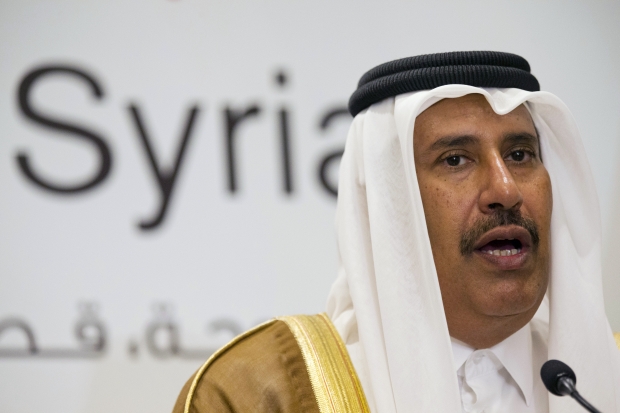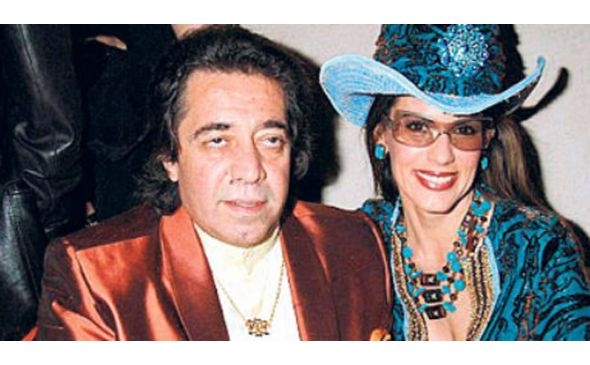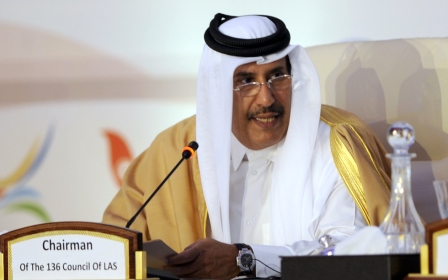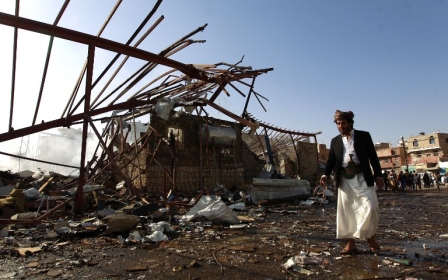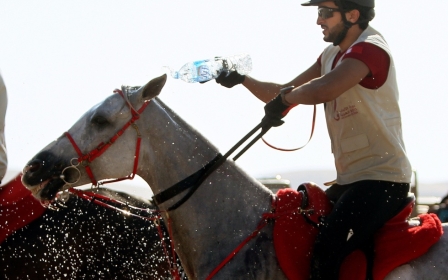Reform diplomatic immunity to end people being above the law: Geoffrey Robertson
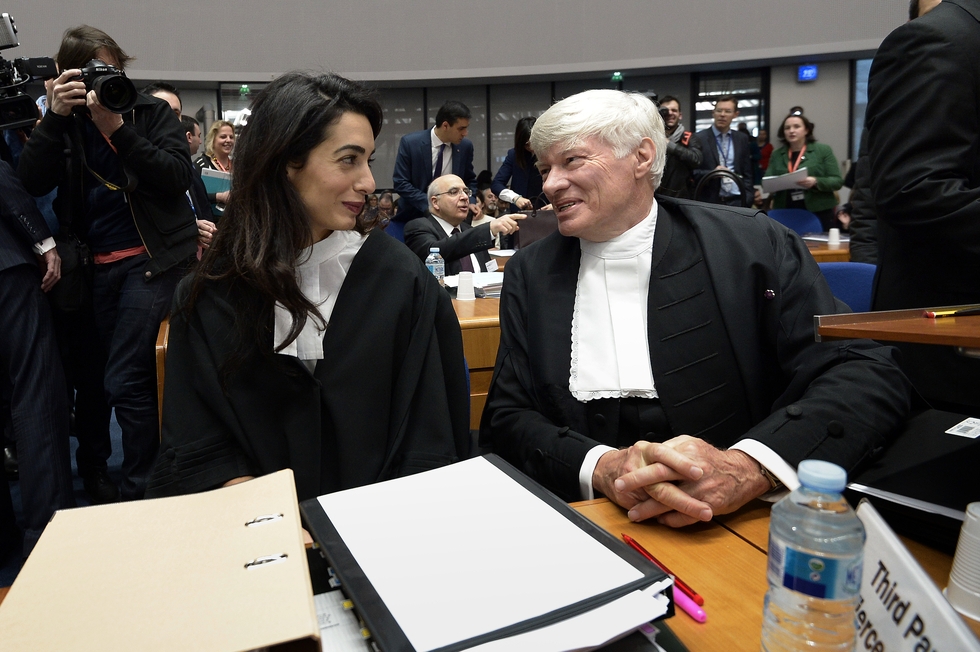
Britain must allow courts the power to rule on diplomatic immunity to stop "sham" appointments being made by foreign embassies and end "abuse" of the law by powerful individuals, according to former UN judge, Geoffrey Robertson QC.
Robertson, who spoke to Middle East Eye on Friday, commented after two recent cases involving Saudi and Qatari diplomats returned contradicting judgments.
The High Court in London ruled on 8 February that Saudi billionaire Sheikh Walid Juffali did not have immunity from prosecution by his ex-wife over divorce proceedings despite him being a registered diplomat representing the Caribbean island of St Lucia at the International Organisation for Migration.
A week later on 15 February a different judge in the same court ruled that billionaire former Qatari prime minister Sheikh Hamad bin Jassim bin Jaber al-Thani, who is known as HBJ, had immunity from prosecution over allegations he tortured a British citizen on grounds he is a registered junior diplomat at Qatar’s London embassy.
There are stark differences between the two cases, with the Saudi businessman being shown to have little connection to St Lucia contrasting with the former Qatari premier’s clear close ties to his own diplomatic mission.
However, with both cases currently going through an appeals process, high-profile human rights lawyer Robertson believes there is an “important element to be clarified” about who has authority over the recognition of diplomatic status and legal immunity in Britain.
In the Qatari case the judge ruled that the Foreign Office holds the power to decide who is and who isn’t a diplomat, while in the Saudi case the judge ruled differently and struck down the defendant’s immunity despite him holding a Foreign Office diplomatic certificate.
The question over who should exercise authority over such decisions was further muddied when a spokesperson for the Foreign Office recently said it was “for the court to rule in diplomatic immunity”.
Few lawyers are better placed to have an opinion on the issue of immunity than Geoffrey Robertson. The 69-year-old was appointed to the Queen’s Counsel in 1988, co-founded the Doughty Street Chambers and has served as a United Nations judge and represented clients including Wikileaks founder Julian Assange and newspapers The Guardian and The Wall Street Journal.
Speaking to Middle East Eye by telephone, Robertson said that a “new problem has emerged” in diplomacy and immunity, which is “people being given or obtaining diplomatic immunity for the purpose of avoiding legal action”.
Robertson did not suggest that this was the case in either of the recent Qatari or Saudi cases. However, he did say that these cases provided an opportunity for the courts to clarify the law on deciding who has the authority to evaluate claims to legal immunity.
“The question that is being raised by these recent cases is who is responsible within a country for stopping abuses of diplomatic immunity and it seems to me that both the government and the courts bear responsibility,” he said.
“This is a matter that can be dealt with, firstly by the receiving government which can refuse to recognise a diplomat or can request an individual’s diplomatic status is waived if the receiving government becomes aware that they are acting wrongly. A government can also declare a diplomat persona non grata.
“But when an action is brought in court and a claim to diplomatic immunity is made then it seems to me the court has the responsibility to decide whether the particular diplomat does justify his or her immunity, or whether they are really a diplomat or whether the diplomatic role is no more than a sham.”
Robertson said that he disagreed with the view that it is the "end of the matter" once the Foreign Office accredits a diplomat.
“Maybe it creates a presumption that an individual really is a diplomat but that presumption can be overturned by evidence,” Robertson explained.
He went on to say that if a subsequent court investigation proved that an individual had “never lifted a diplomatic finger” it could lead a judge to conclude “the diplomacy side of an individual’s appointment is really a sham”.
The importance of this point, Robertson said, was that it makes the best case for the court being empowered to rule whether or not a diplomat should be entitled to immunity.
The government, he said, does not have the time to investigate all the diplomats sent to serve in Britain.
In his last statement on diplomatic immunity Foreign Secretary Philip Hammond revealed in July 2015 that 22,000 people are entitled to diplomatic immunity in Britain – this includes diplomats and their families.
The United States has the highest number of registered diplomats in Britain with 164, however; Saudi Arabia is not too far behind with 109, despite it being a much smaller country. Qatar has 14 – this includes former emir Sheikh Hamad bin Khalifa al-Thani and former prime minister HBJ.
Robertson is hopeful that the conclusion of the recent cases involving Saudi and Qatari diplomats will establish whether the courts will definitively have the power to investigate the diplomatic credentials of individuals appearing before a judge.
However, the issue of who can and who can’t interrogate diplomats and decide on their right to legal immunity is not the extent of the question for Robertson.
He said the issue of immunity runs deeper and the whole system must be reviewed to bring it up to date with the modern world.
Robertson believes that when diplomatic immunity has allowed individuals to avoid prosecution in cases that have nothing to do with embassy work then this runs contrary to its original purpose, which was to “assist what is called the function of the mission”.
He described, without reference to specific cases, that immunity has been “abused” when used by individuals to avoid prosecution in cases unrelated to diplomatic work.
But he did argue that diplomatic immunity has provided a vital service to ensure peace talks can take place between warring nations and allow countries to deal with each other at times of hostility – for example during the Cold War.
“We can say that diplomatic immunity has served and continues to serve the important purpose of allowing diplomats to do their job un-harassed,” he said.
Nevertheless, Robertson called for significant changes to modernise the doctrine of diplomatic immunity.
“We have to accept that any immunity from court action puts an individual above the law and for Britain this is particularly problematic because that is one of the great gifts of Magna Carta, which is that ‘to no one will we deny justice’.
“People shouldn’t be immune from law; the rule of law should affect everyone equally.”
He said diplomatic immunity should be “limited as far as is possible”.
“It should be confined as far as possible to protection against unjust allegations or against physical attacks on embassies and it should be limited to situations where there is a real danger that the functions of the embassy will be put in peril,” he said.
If this were to be implemented then diplomats would be placed under increased legal scrutiny and Robertson believes equality would be improved as a result.
“It would mean that diplomats who are charged with serious criminal offences upon credible evidence should lose their immunity,” he said.
For such a change to take place the rules governing diplomats would have to be changed. This would mean revising the 1961 Vienna Convention, which Robertson said was “largely drafted by diplomats in their interest”.
Robertson’s argument rested on the idea that in order to make diplomatic immunity fairer it must be limited as much as is possible.
“Immunity should be limited to the most significant members of the diplomatic staff and it should be limited to situations where they have been conducting business of the embassy or the functions of the embassy,” he said.
The cases involving Saudi and Qatari diplomats continue at the High Court in London.
New MEE newsletter: Jerusalem Dispatch
Sign up to get the latest insights and analysis on Israel-Palestine, alongside Turkey Unpacked and other MEE newsletters
Middle East Eye delivers independent and unrivalled coverage and analysis of the Middle East, North Africa and beyond. To learn more about republishing this content and the associated fees, please fill out this form. More about MEE can be found here.


